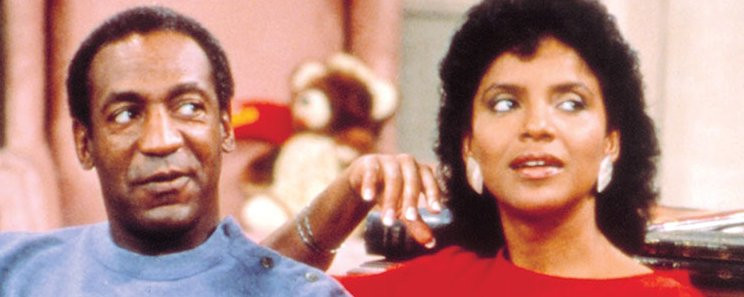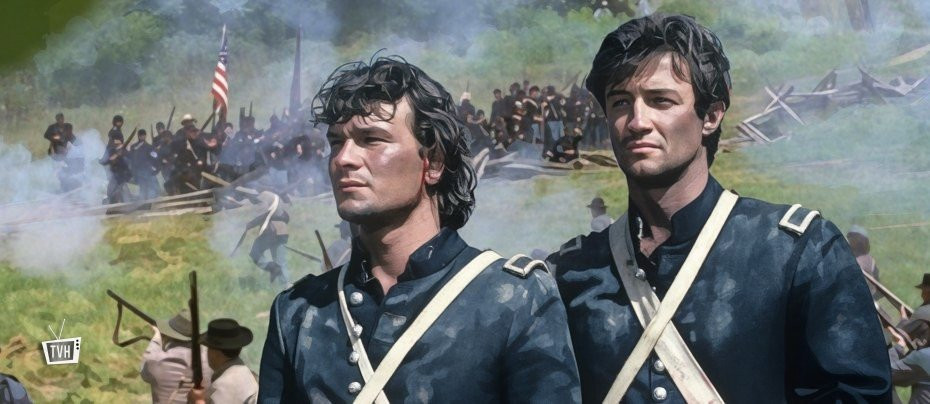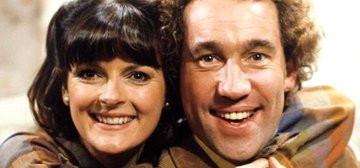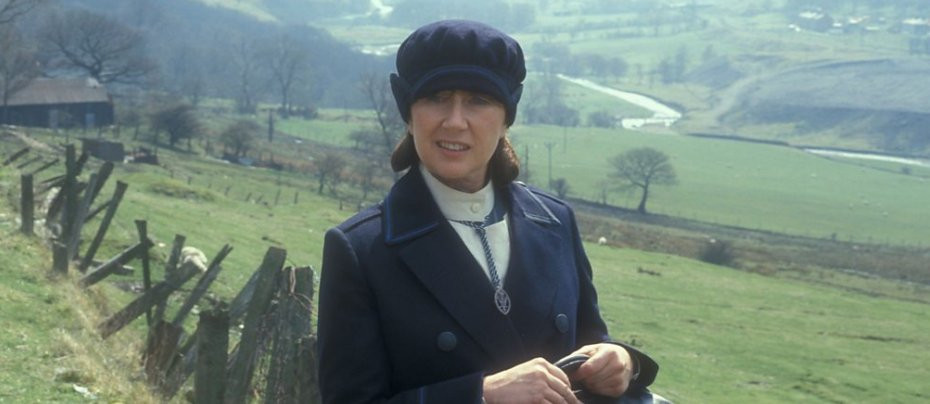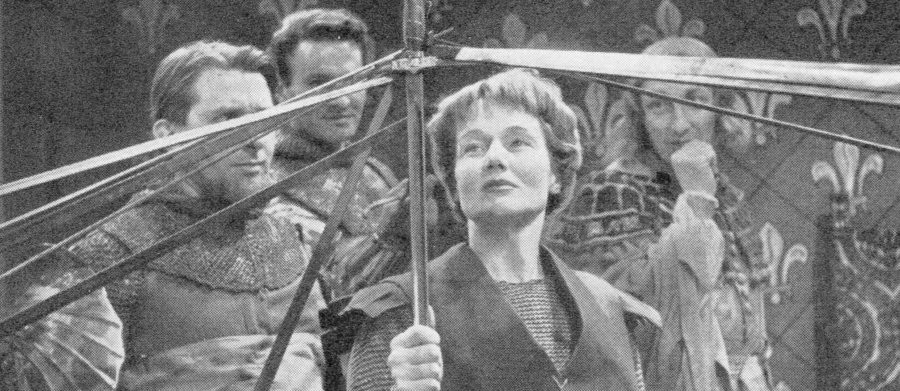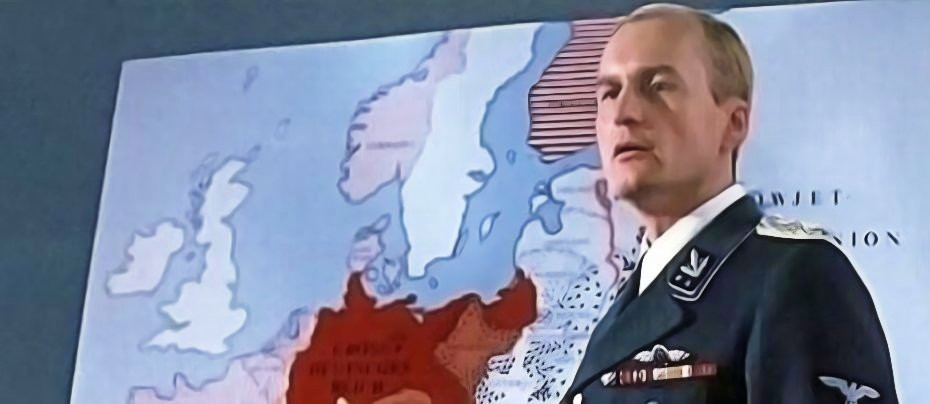
The Wannsee Conference / Die Wannseekonferenz
1984 - GermanyReview by John Winterson Richards
It is unusual for a murderer to write a full confession in advance, but that is exactly what happened in the biggest single crime in history, the murder of between five and six million Jewish men, women, and children by what was at the time their own government, or at least the government ruling their land. "Holocaust denial" should be impossible when we have the perpetrators' own intentions on paper in the form of the "Wannsee Protocol," a summary of the minutes of a meeting of officials in a pleasant suburb of Berlin in January, 1942. Indeed, in something of a flight of fantasy, they record their intention of killing eleven million, including those in the United Kingdom, which they did not occupy and which by that point they had lost all realistic chance of occupying.
It is important to note that the policy decision was not made at Wannsee. Exactly who made it and when was left deliberately obscure in order to maintain "deniability," because even they knew it was wrong, but mass killing was already underway: several of the participants at the meeting were actively involved in it and all were well aware of it. The purpose of the eponymous Wannsee Conference was therefore to sort out the administrative details in order to make it more efficient. It was in effect a standard interdepartmental liaison meeting of second-level functionaries concerned with the implementation of what had already been decided elsewhere. It was almost certainly one of a number of such meetings but the only one of which we have a summary of the minutes, the rest having been destroyed deliberately or in the course of War.
It was a standard bureaucratic exercise, apparently no different than if they had been planning a construction project or drafting a law. This is not in itself high drama, a bunch of dull officials talking around a table, but it has been the subject of three major television dramatisations, all of which succeeded to the extent that they emphasised the bureaucratic ordinariness of it all.
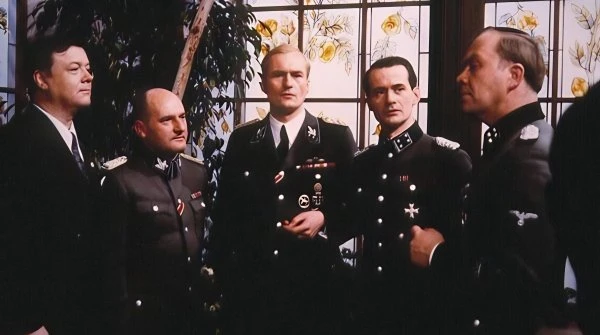
This is a review of the first, a German production in the appropriate year of 1984. It was followed in 2001 by Conspiracy, a star-studded, Award-laden English language version with Sir Kenneth Branagh and Stanley Tucci. Another German version appeared in 2022.
All have their merits, but the 1984 television film feels the most realistic, possibly because it is closer in time to the War and there is a greater honesty to it. For some reason, the younger generation are more sensitive about the War than the Wartime generation, and younger writers and producers are more inclined to want to signal their disapproval of historical events when one might think that disapproval could be taken for granted. Older projects are more likely to give us the facts and let them speak for themselves.
What the 1984 Die Wannseekonferenz, also known as The Final Solution: The Wannsee Conference, gives us is a realistic evocation of a committee meeting that could be about anything - except it just happens to be about the extermination of millions of human beings.
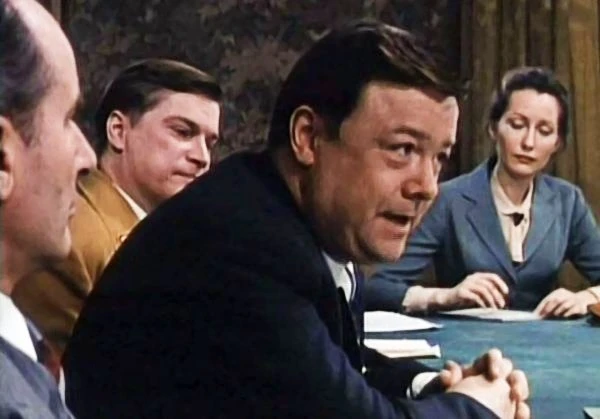
It has the definite air of a corporate retreat, with a buffet, free drinks, and the forced good fellowship of men who really do not know each other very well. Reinhard Heydrich, who, in true National Socialist style, had several jobs at once at the time, most importantly as deputy to SS Chief Heinrich Himmler (and also, as is mentioned in passing, President of Interpol - honestly), is played as an ambitious young CEO, eager to assert his authority but also cautious, knowing that it will be tested by other experienced players around the table.
Those players include a number of types who will be familiar to anyone who has been involved with committee or corporate politics - the pedant, the sycophant, the technocrat, the lightweight, the fanatic, the bully, the salesman, the turf warrior, the senior man very conscious of his status, and the junior all too conscious of his and ambitious to improve it. Such characters might immediately make one think of similar people one has met in one's own life, and it may not be hard in some cases to imagine those people at Wannsee. It is less a political drama than a well-observed study of human dynamics.
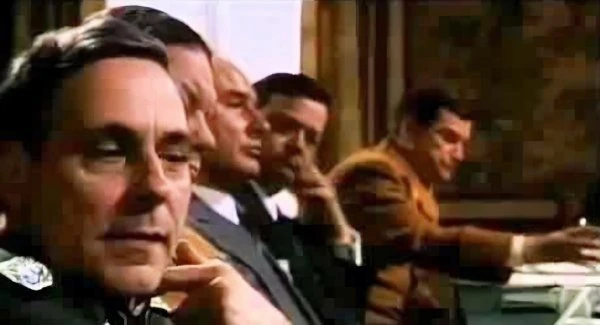
Heydrich, as played by Dietrich Mattausch, provides a masterclass in how to chair a potentially difficult meeting. He is good-humoured, but brisk and efficient, working to a definite plan. He has a pre-meeting with his closest allies and a post-meeting, which reveal his real agenda, to get all the other departments to acknowledge the somewhat dubious authority of the SS over all aspects of Jewish policy. It sometimes seems as if Wannsee is less about the Jews than it is about enhancing the power and status of Heydrich and his boss Himmler within the National Socialist hierarchy. It feels like a departmental power grab with millions of human lives a means to that end.
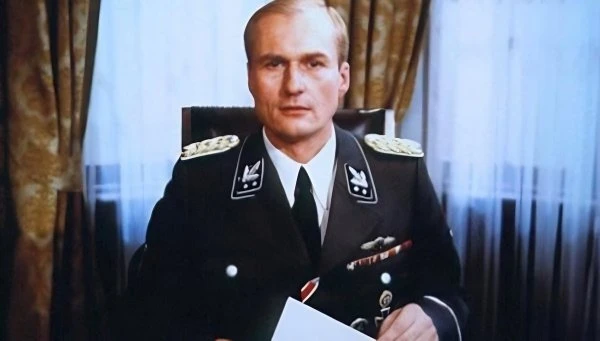
The pre-meeting makes it clear that Heydrich and the SS caucus view those they call "the bureaucrats" as their real opponents. The seating at the conference table is very significant. Heydrich and his fellow SS officers all sit together on one side, looking very imposing in their uniforms. "The bureaucrats," mostly in civilian clothes, or in less militaristic, almost Ruritanian Party uniforms, look more like petitioners on the other side. One of them, proud of his honorary SS rank, does wear the appropriate uniform, but, symbolically, it looks slightly too big for him and, in any case, he lacks the proper military bearing to wear it properly. At one end of the table, and therefore on neither side, the representative of Hitler's Chancellery, the man Heydrich most wants to impress, sits almost like a referee. At the other end sits the stenographer, played by Anita Mally, a pretty woman in a room full of alpha males, who is nevertheless calmly self-assured, no doubt because she is used to dealing with their sort.
Heydrich, a married man, flirts openly with her. He is generally very affable, even charming, as the historical Heydrich could be when he wanted - a rare skill among the top National Socialists who, with rare exceptions like Goering, tended to be the sort of people with whom one would not want to get stuck at a party. He jokes with his colleagues. He plies them with good food and drink - at a time of Wartime shortage. There is a nice moment when we see a well-fed National Socialist glancing with approval at the label of a bottle of Cognac.
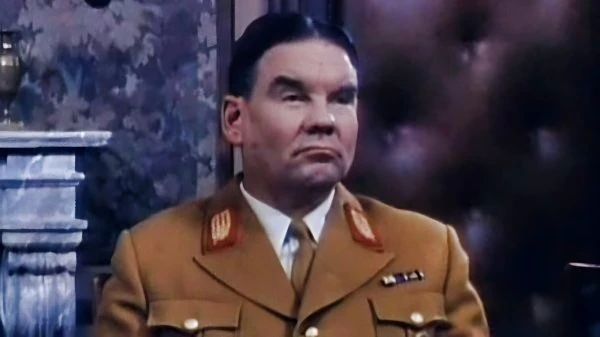
Yet, even as he is softening them up, Heydrich is dealing methodically with sources of potential opposition among them. Some, most notably the Chancellery man, he mollifies by treating them with the respect they take as their due. Others, of lesser status, he wins over with compromise: he assures the man from the economics department that Jews will not be taken from essential War industries; by contrast, he agrees to take the Polish Jews first because the department administering occupied Poland is complaining about feeding them. The vulnerable he isolates: he lets everyone else ridicule the honorary SS officer without needing to do much himself.
Needless to say, given the composition of the meeting, all committed National Socialists and open, even proud Antisemites, there is no opposition on moral grounds. There is, however, a lot of quibbling about legalities. It was a difficulty for later prosecutors that about half the people around the table had law degrees and traditional German legalism was an important factor in all the decision making. There is a chilling description of the "proper procedure" in which Jews were expected to sign over all their property to the Reich before "deportation." Murder had to be according to the rules. In the end, Heydrich got away with brusquely ignoring the National Socialists' own laws on the definition of who was a Jew, exposing their longstanding ideology on the matter for the nonsense it was. A supposedly innocent passing remark by the stenographer sums up the hypocrisy neatly. Heydrich actually put himself in a potentially dangerous position where he might have been executed even under German law had he ever lost political power - instead of being assassinated by Allied agents a few months later.
The Wannsee Protocol itself is not the stenographer's notes but a summary edited carefully by Heydrich and his dogsbody, Adolf Eichmann, to which Eichmann later added helpful commentary at his trial in Israel (see our review of The Eichmann Show). Euphemisms abound, as they do in the script - "evacuation," "treatment," "their proper destiny" - but it is clear what was intended.
The writers use the dramatic liberty left by the absence of the complete dialogue to include some moments that illustrate the human cost of all this office politics. The case of Jenny Cozzi is particularly tragic: Italy, Germany's supposed ally, lobbied hard for her freedom because she had been married to an Italian officer, but she had seen the inside of a ghetto, so the Germans were terrified that she would talk about what she saw there if she was ever released. A conversation before the meeting about the state of railway carriages that had been used to transport victims of the "deportation" illustrates a number of appalling truths about the Shoah, not least how many must have known that something was happening. The occasional barking of the pet Alsatian of one of the participants is unnerving throughout and has a horrible payoff, just as one might be starting to assume that no one can be all bad if they love dogs.
Yet the point has already been well made that these men are fairly ordinary. Most were not psychopaths or sadists: they held responsible posts; they took pride in their status; they believed in their work; they were well educated, half of them with university doctorates; they had families and we see they are all capable of normal social interaction; they saw themselves as reasonable and pragmatic, patriotic but practical; and the worst of them really loved his dog.
The whole cast feels thoroughly authentic, not least in that one is left thinking of Hannah Arendt's famous line about "the banality of evil." As if to emphasise the point, the film ends with a note that the only person ever convicted in connection with their attendance at Wannsee was Wilhelm Stuckart (the honorary SS officer, played by Peter Fitz), who is depicted as being the most cautious there about changing legal definitions. He served three years in prison. Several of the others lived respectably and comfortably in Post-War Germany.
Seen this show? How do you rate it?
Seen this show? How do you rate it?
Published on November 29th, 2023. Written by John Winterson Richards for Television Heaven.


